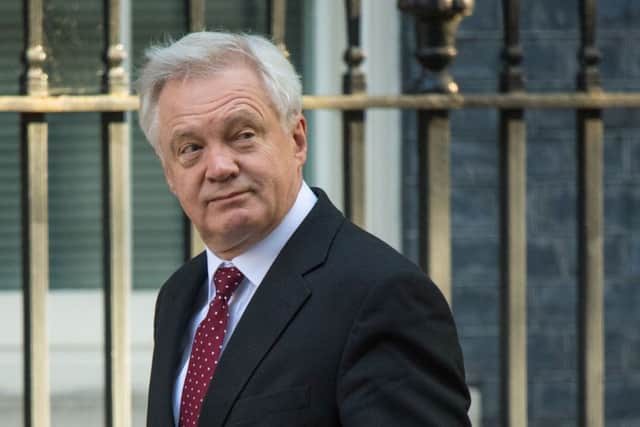Brexit Repeal Bill: What happens next?


The EU Withdrawal Bill was passed in the early hours of Tuesday morning by 326 votes to 290, with seven Labour MPs defying Jeremy Corbyn’s order to oppose it and a further 13 abstaining.
The SNP’s 35 MPs voted against, with international affairs spokesman Stephen Gethins describing the legislation as a “dark day for devolution and democracy”.
Advertisement
Hide AdAdvertisement
Hide AdCritics of the bill believe ministers have gone too far in giving themselves the power to make changes to laws during the Brexit process without consulting MPs.
The Government counters it needs to be able minor changes to legislation quickly to avoid the process stalling.
Tory MP Mark Harper accused opponents of playing politics his was “the only party willing to put party politics aside in the national interest to deliver a Brexit voted for by the British people”.
But Mrs May cannot rest easy despite her victory. Tory backbenchers are planning numerous amendments to the bill. With no overall majority, the Government could be outvoted on crucial issues if just six Conservatives MP decide to rebel.
Unity in the Labour ranks
Senior Tories will be hoping splits in Labour over Brexit widen in the coming weeks. Mr Corbyn has regularly been accused of being inconsistent at best and confused at worst when it comes to Europe. This muddled thinking does not foster unity among MPs and emboldens rebels. Even veteran socialist firebrand Dennis Skinner voted against his old comrade in arms last night.
There are signs however the Labour leadership has at last agreed upon a Brexit stance. Mr Corbyn indicated on Monday he wanted the UK to continue to “trade within the single market” and added it was “open for discussion” whether this should involve formal membership after a transitional period.
Time will tell if the Labour leader sticks to this line and whether his MPs will buy it.
But the clarification was welcomed by the Nationalists. The SNP has repeated its call for MPs across the chamber to unite behind a common purpose and prevent the Government from “railroading further Brexit legislation through”.
Advertisement
Hide AdAdvertisement
Hide AdScotland’s Brexit secretary Michael Russell claims powers returning from the European Parliament will give Westminster control over 111 areas currently devolved to Scotland.
The next stage
The bill faces damaging attacks from all sides. Shadow Brexit secretary Sir Keir Starmer said it was a “naked power grab” by the Government, adding Labour would seek to amend and remove many aspects of the legislation. They could find common cause with the Conservative MPs who have already tabled 157 amendments to “remove the excesses of the bill”.
Devolution is a sticking point. Plaid Cymru said divisions in the Labour Party “risk letting the Tories off the hook” while the SNP claimed the Scottish Tories had abandoned Scotland’s “economic and social interests and instead followed Westminster orders”.
The bill will be considered at the committee stage when MPs return to parliament after their party conferences.
Mrs May must proceed with caution or her bill could end up looking unrecognisable.